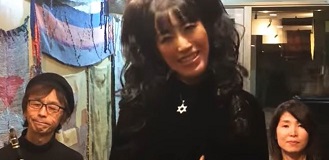In Chinese, the two character combination 光陰 (guāng-yīn) literally means “light-dark”. But the intended sense is like that in the English phrase “day in, day out”. Or even like that in the song “Sunrise, Sunset”. This phrase occurs in the ancient poem called “The Harmony of Difference and Sameness” (aka The Sandokai), in the line: 光陰莫虚度, which can be translated as “do not pass your days and nights in vain.”
光陰 (guāng-yīn) “days and nights”
莫 (mò) “do not”
虚 (xū) “false/worthless/vain”
度 (dù) “spend time”
